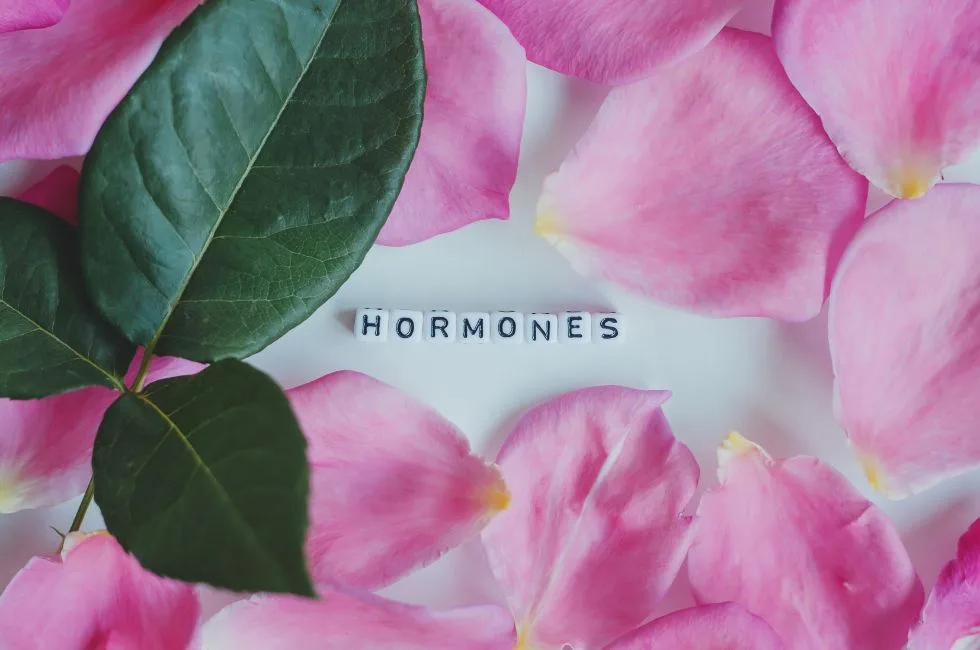Hormonal balance is a cornerstone of health and well-being, especially for women. From regulating the menstrual cycle to influencing mood and energy levels, hormones play a pivotal role in the daily lives of women.
Understanding Key Hormones in Women

Estrogen: The Feminine Hormone
- Functions: Estrogen is crucial in the development of female sexual characteristics, such as breasts and a wider pelvis. It regulates the menstrual cycle and supports pregnancy. Additionally, it influences bone health, cholesterol levels, and even mood.
- Impact on Health: An imbalance in estrogen levels can lead to various issues, such as irregular periods, mood swings, weight gain, and, in the long term, can affect heart and bone health.
Progesterone: The Balancing Act
- Role: Often working in tandem with estrogen, progesterone plays a key role in preparing the body for pregnancy and maintaining it. It also helps regulate the menstrual cycle.
- Importance: Adequate levels of progesterone help counterbalance estrogen’s effects, ensuring menstrual health and mood stability. Low progesterone levels can lead to irregular menstrual cycles and can impact fertility.
Testosterone: Not Just a Male Hormone
- Lesser-Known Effects: Though typically associated with men, testosterone is also important in women. It contributes to muscle strength, bone density, and sexual drive.
- In Women’s Health: Low testosterone levels in women can lead to decreased libido, fatigue, and muscle weakness. Conversely, too much testosterone can be associated with conditions like polycystic ovary syndrome (PCOS).
Signs of Hormonal Imbalance

Menstrual Irregularities: This includes missed periods, excessively heavy or light bleeding, or irregular cycles. Such changes can be a primary indicator of hormonal imbalance.
Mood Fluctuations: Hormones significantly influence mood. Feelings of anxiety, depression, or irritability that seem to have no clear cause can be linked to hormonal shifts.
Sleep Disturbances: Trouble falling asleep or staying asleep can be related to hormonal imbalances, particularly changes in progesterone and estrogen levels.
Weight Changes: Unexplained weight gain or difficulty losing weight, despite a healthy diet and exercise, can signal a hormonal imbalance.
Fatigue: Persistent tiredness that doesn’t seem to improve with rest may be a sign of hormonal issues.
Skin and Hair Changes: Hormonal imbalances can lead to acne, dry skin, or changes in hair texture or hair loss.
Decreased Libido: A noticeable drop in sexual drive can be due to hormonal shifts, particularly with testosterone levels.
Natural Ways to Balance Hormones

Diet: Foods to Include and Avoid
- Include: Foods rich in omega-3 fatty acids (like salmon and flaxseeds), high-fiber vegetables, lean proteins, and fermented foods that promote gut health.
- Avoid: Processed foods, excessive sugar, and caffeine can disrupt hormonal balance. Limiting these can help maintain hormonal equilibrium.
Exercise: Types and Frequency
- Regular exercise, including a mix of cardio, strength training, and yoga, can help regulate hormones. Aim for at least 150 minutes of moderate aerobic activity or 75 minutes of vigorous activity per week, along with muscle-strengthening activities on 2 or more days a week.
Stress Management: Techniques and Importance
- Chronic stress can wreak havoc on your hormonal balance. Techniques like mindfulness, meditation, and deep-breathing exercises can help manage stress levels.
- Getting adequate sleep and practicing good sleep hygiene are also crucial for hormonal health.
When to Seek Medical Advice
Persistent Symptoms: If you’ve tried natural remedies and lifestyle changes but your symptoms persist or worsen, it’s time to consult a healthcare provider.
Severe Menstrual Irregularities: If you experience extremely heavy bleeding, very painful periods, or complete absence of periods, these could be signs of a more serious condition requiring medical attention.
Symptoms of Hormonal Disorders: Certain symptoms might indicate conditions like polycystic ovary syndrome (PCOS), thyroid disorders, or menopause. Professional diagnosis and treatment are essential in these cases.
Planning for Pregnancy: If you’re trying to conceive and suspect hormonal imbalances, a healthcare provider can offer guidance and treatment to improve fertility.
Types of Medical Treatments Available: Treatment options might include hormone replacement therapy, medications to address specific symptoms, or lifestyle and dietary recommendations tailored to your individual needs.
Maintaining Hormonal Health
Lifestyle Habits for Long-Term Balance
- Maintain a balanced diet rich in whole foods, and ensure you’re getting enough vitamins and minerals.
- Regular physical activity is vital. Find an exercise routine that you enjoy and can stick to.
- Prioritize sleep. Aim for 7-9 hours of quality sleep each night.
Stress Reduction
- Incorporate stress-reduction practices into your daily routine. This could include meditation, yoga, or simply spending time in nature.
- Learn to recognize stressors in your life and develop healthy coping mechanisms.
Frequently Asked Questions (FAQs)
Signs of hormonal imbalance include menstrual irregularities, mood swings, unexplained weight changes, sleep issues, and fatigue.
Absolutely. A diet rich in whole foods, healthy fats, and fiber can support hormonal health, while processed foods and high sugar intake can disrupt it.
No, hormonal imbalances can occur at any age. Factors like stress, lifestyle, and certain health conditions can affect hormonal balance in women of all ages.
Yes, it’s normal to experience mood fluctuations due to hormonal changes during your cycle.
It depends on your individual health and any symptoms you’re experiencing.




